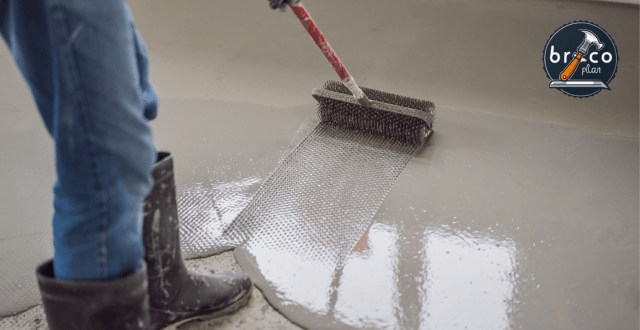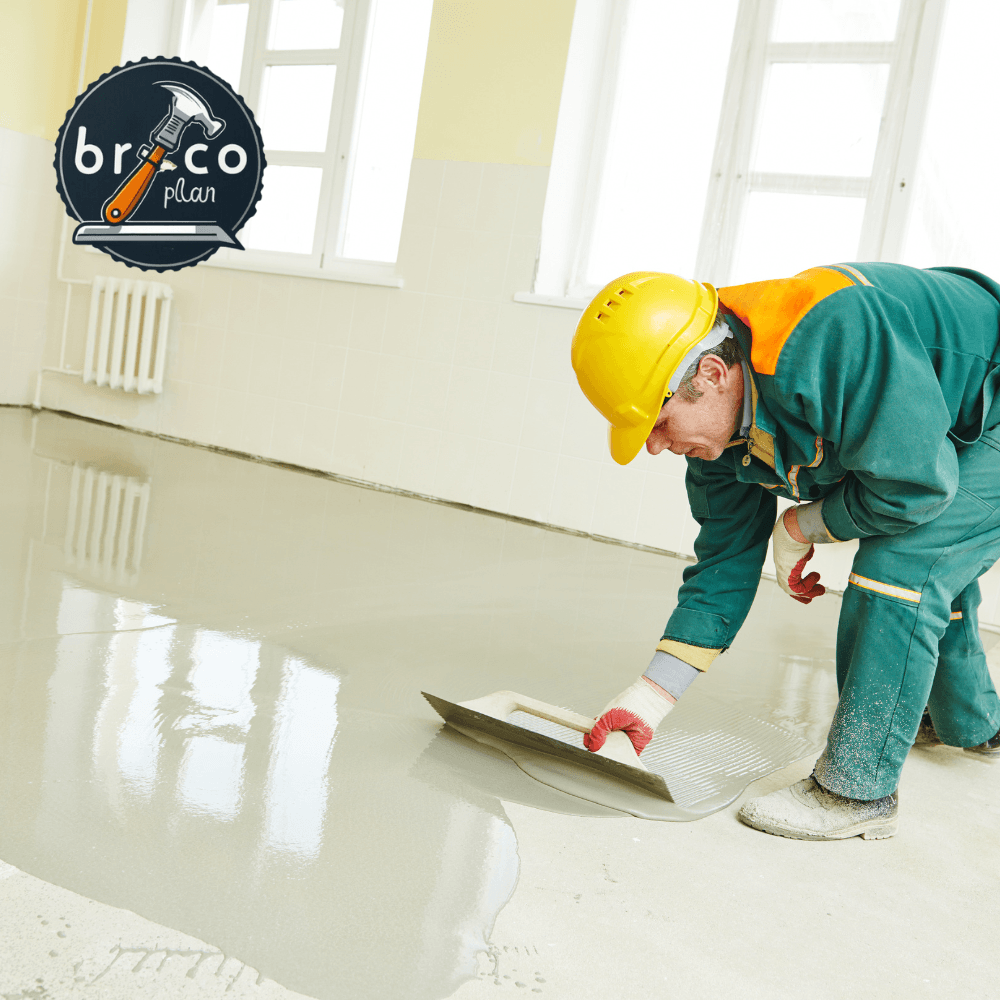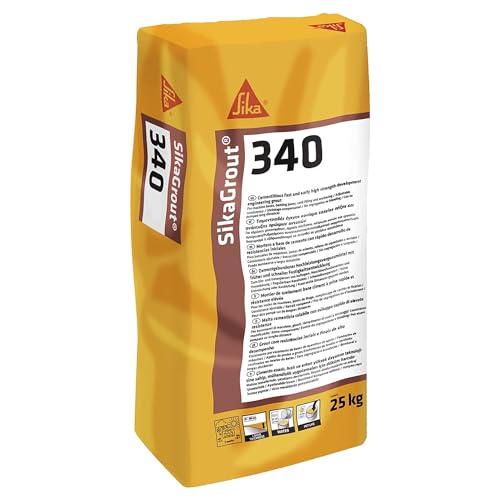
Self-Leveling Mortar: Uses, Advantages, and Tips for a Perfect Finish
He self-leveling mortar It's an essential material in modern renovations, thanks to its ability to provide smooth, even surfaces ready for the final finish. Whether you're leveling a floor before laying tiles or renovating outdoor spaces, this material combines efficiency and professional results. In this article, we'll explore the difference between a leveling compound and self-leveling cement, its uses, advantages, and how you can apply it to transform any DIY project.
What is Self-Leveling Mortar?
Self-leveling mortars maintain the viscosity of the product in such a way that it remains uniform in composition from top to bottom without the sand aggregates sinking to the bottom of the installed layer.

He self-leveling mortar It is a mixture of cement, additives and water that, when applied, spreads and levels itself without the need for intensive work with tools.
This self-leveling cement is ideal for correcting uneven surfaces and preparing them for finishes such as tiles, wood, vinyl or carpets, or epoxy paint.
Main uses of Self-Leveling Mortar
- Preparation of interior floors:
Perfect for smoothing surfaces before installing flooring such as stoneware, parquet, vinyl or epoxy paint. - Outdoor application:
Specially designed for terraces or patios, ensuring proper drainage and a uniform surface. - Surface rehabilitation:
Ideal for correcting cracks, unevenness and wear in existing floors. - Decorative finishes:
Some versions allow for a visible finish, perfect for industrial or modern styles. - Base for radiant heating systems:
Its ability to adapt to different thicknesses makes it compatible with underfloor heating installations.
Advantages of Self-Leveling Mortar
| ✅ Advantages | ❌ Contras |
|---|---|
| Easy application, ideal for beginners. | Not suitable for extremely uneven surfaces. |
| Save time by leveling automatically. | May require prior priming on certain floors. |
| Compatible with various types of finishes. | Quick drying, leaving little room for corrections. |
| Great strength and durability. | It can be expensive in large stores. |
| Allows decorative finishes. | Not suitable for outdoor use unless protected. |
Difference between Leveling Paste and Self-Leveling Mortar
Although many people confuse the two, knowing the difference between leveling compound and self-leveling mortar is key to choosing the right product for your renovation projects. Both materials are used to level surfaces, but they have different characteristics, uses, and applications that should be clear before starting.
Understanding the difference between leveling compound and self-leveling mortar will save you time, avoid common mistakes, and ensure a professional finish on floors and surfaces. Below, I'll explain the main differences so you know which one to use in each case.
Although leveling paste and self-leveling mortar are often confused, both materials have key differences:
| Aspect | Leveling Paste | Self-leveling mortar |
|---|---|---|
| Material | Composed of resins and fine particles | Composed of cement, sand and chemical additives |
| Applicable Thickness | Up to 5 mm | From 5 mm to 50 mm |
| Main Uses | Level out small irregularities or smooth surfaces | Level large surfaces and correct significant unevenness |
| Drying | Fast, in less than 24 hours | Slower, may take up to 48 hours |
| Suitable for | Interiors, especially for small jobs | Interiors and exteriors with greater structural demand |
| Endurance | Lower mechanical resistance | High mechanical resistance and durability |
Quick explanation:
- Leveling paste: Ideal for small jobs with less unevenness and a fine finish.
- Self-leveling mortar: Designed for larger areas with significant slopes and greater resistance.
Steps to apply self-leveling mortar
- Surface preparation:
Clean the area well, removing dust, grease, or traces of old materials. - Primer:
Apply a suitable primer to improve the adhesion of the mortar. - Mixed:
Follow the manufacturer's instructions to achieve the proper consistency. - Pouring and leveling:
Pour the mixture and spread it using a trowel or spiked roller to remove air bubbles. - Drying:
Allow to dry for the time indicated on the packaging before applying the final finish.
⏱ Tip: Always check the drying time of each product before walking on or covering it. Using the appropriate material for the type of work will prevent rework and installation errors.
Price of Self-Leveling Mortar
The cost of self-leveling mortar can vary depending on the brand, type, and performance:
| Type of Mortar | Price Range (€/m²) | Features |
|---|---|---|
| Basic Mortar | 5 – 10 €/m² | Economical, ideal for small interior surfaces |
| Reinforced Mortar | 10 – 20 €/m² | Greater resistance, suitable for outdoors |
| High Fluidity Mortar | 20 – 35 €/m² | Professional use, ideal for leveling large surfaces |
| Heavy Duty Mortar | 35 – 50 €/m² | High mechanical resistance, recommended for industrial areas |
Summary of the different Self-Leveling Mortars:
- Basic Mortar: Most economical option for simple home projects.
- Reinforced Mortar: Ideal for outdoor areas with greater durability.
- High Fluidity Mortar: Perfect for large surfaces, used by professionals.
- Heavy Duty Mortar: For high traffic or industrial areas, with a higher cost.
FAQs – About Self-Leveling Mortar
Conclusion: What type of self-leveling mortar should you choose?
Choosing the right self-leveling mortar depends on several factors, such as the type of surface, the environment (indoor or outdoor), and the intended use of the space. To ensure a flawless finish that meets all your needs, I recommend the following:
- For residential interiors:
Use a standard self-leveling mortar, ideal for smooth surfaces where flooring such as parquet, ceramic, or vinyl will be installed. If the surface has minor irregularities, this option is sufficient. - For high traffic or commercial areas:
Choose a fiber-reinforced self-leveling mortar. This type offers greater compressive strength and is ideal for supporting heavy loads or constant traffic. - For outdoors:
Make sure you choose a self-leveling mortar specifically designed for exteriors that's resistant to weather changes and moisture. Make sure it includes anti-slip properties if the area will be heavily used. - With radiant heating:
Choose a high-flow self-leveling mortar compatible with radiant heating. This type ensures even coverage and maximizes heat transfer. - For quick repairs or minor touch-ups:
If you only need to level small areas, a leveling paste may be more practical and economical.
Final Recommendation: Always check the product specifications and follow the manufacturer's instructions. If you have any doubts, consult a professional to ensure a perfect and long-lasting finish. Remember that base preparation and proper application are just as important as the type of mortar you choose.
Additional tickets for Bricoplan
- Definitive Guide to Epoxy Resin
- Vinyl Flooring: Versatile, Affordable, and Easy to Install
- Renovate your kitchen without construction work
- Remodel Your Bathroom on a Budget: Complete Guide
- Analysis of Fisher Thermal Insulation Paint
- Best Folding Workbench: Complete Guide
- The 5 Best Self-Leveling Laser Levels
- 20 Easy DIY Home Projects
- The Ultimate Guide to Art Plaster, Ceramic Plaster, and Modeling Plaster
- Industrial Style Interior Design: Ideas and Tips
- 12 DIY Tools to Give as Gifts



